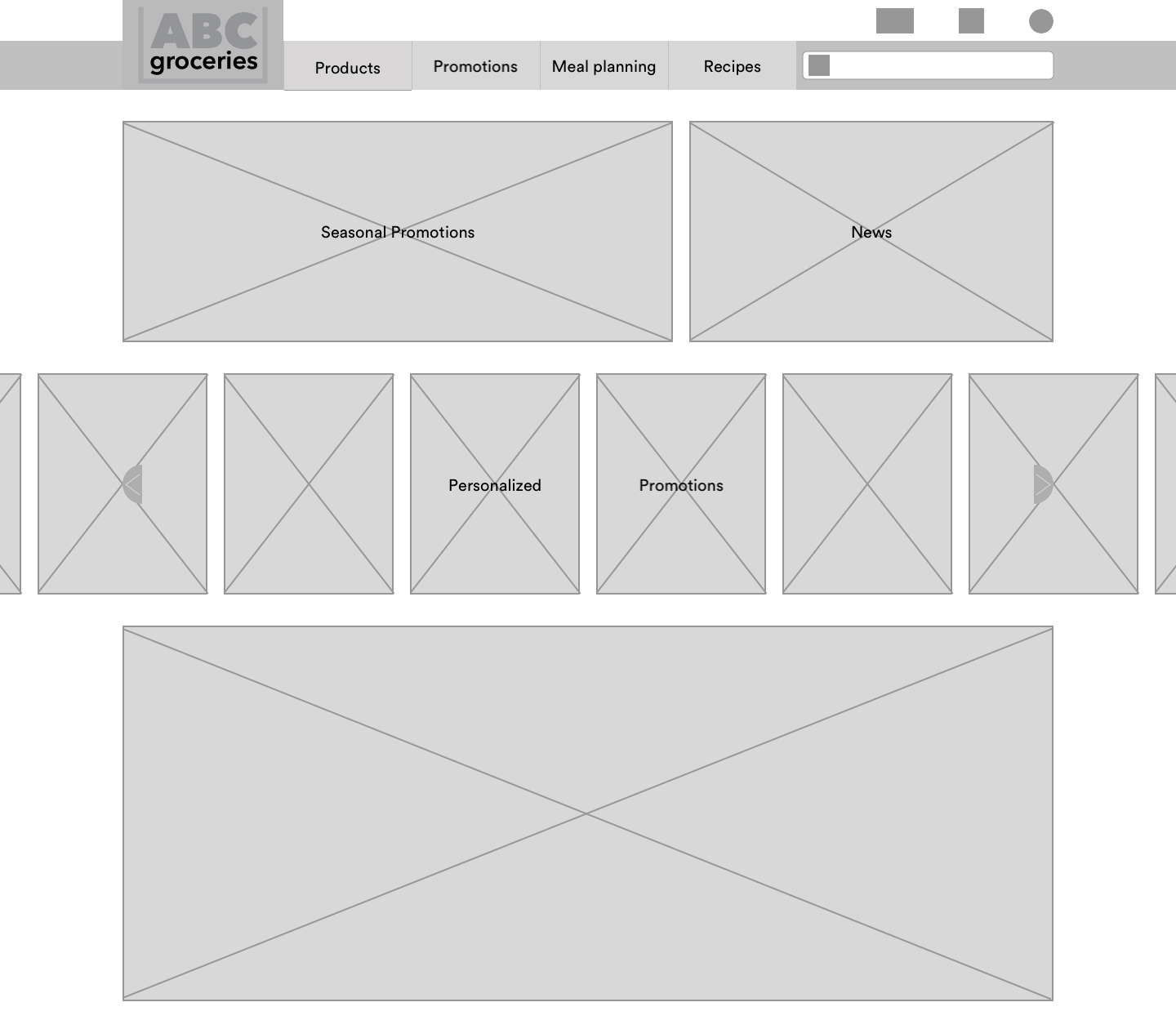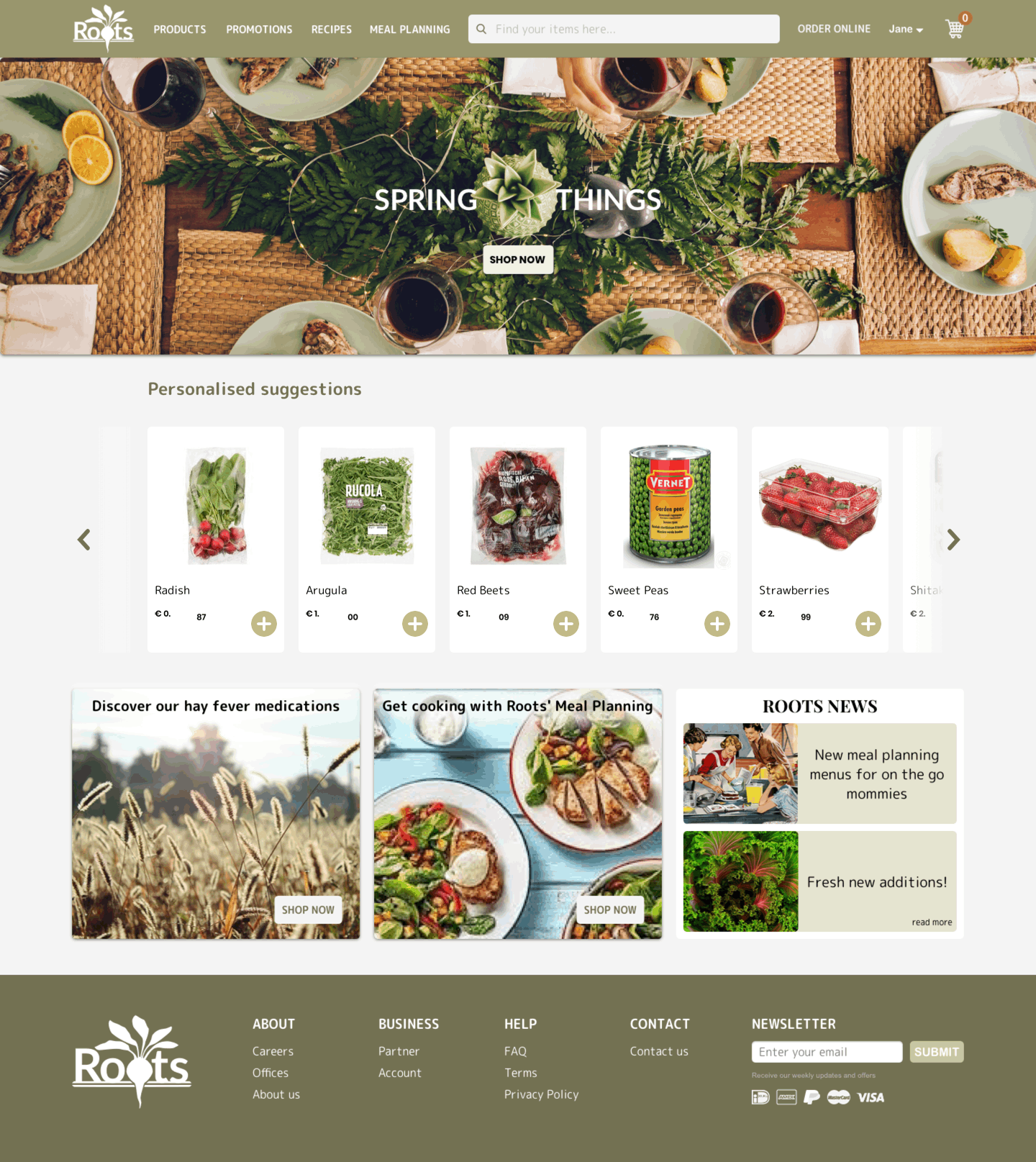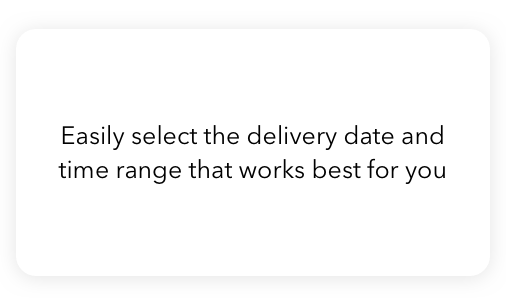With all the conveniences afforded to us with online shopping… Why are so many shoppers hesitant to buy groceries online?
Team project | Duration 2 week sprint | Spring 2019
Introducing Roots. Providing all the benefits of your favourite brick-and-mortar supermarket shopping experience in the comfort of your own home.
Problem
Even though shopping online has become second nature, most people are still hesitant to buy their groceries online. When it comes to purchasing food, the majority of consumers prefer to shop in-store for the ability to judge freshness.
Impact
As a result consumers are spending a considerable amount of time going to their preferred supermarkets, dealing with congested stores, queueing in long lines, limiting themselves to items they can physically transport home, and otherwise wasting valuable time that could be spent with family, friends, or in other creative outlets.
Ideal
The ideal online grocery shopping solution provides consumers with all the conveniences of online shopping while also giving them the sensation of a tactile experience. Shoppers should have full control over the quality of each item they place in their cart. This means customers are able to select products based on their expiration date to insure freshness and to reduce waste. Items with shorter shelf lives, (items that expire sooner) are incentivised by teared pricing based on their expiring dates.
Benefit
Aside from the the obvious benefits of online shopping; avoiding crowds, long lines, physical challenges, and saving time & money. Roots empowers consumers with full control over the freshness of their groceries and how much they spend. Furthermore allowing customers to select items based on their expiration dates, provides additional savings and reduces waste. The result is an increase in trust, thus a converting more in-store customers to online shoppers.
Through Business and Competitive Analysis, I was able to familiarize myself with the grocery industry and understand what actions an organization should take in order to increase their profit and fulfil their objectives.
We sent out online surveys to collect quantitative data on user’s online shopping behaviours, motivations and their awareness of the online groceries. We collected 49 responses from users.
I took every opportunity to speak with people in the buss, at coffee houses and in canteens. My team and I posted up in front of various supermarkets to speak with shoppers as they entered or left the market. We found that the great majority of shoppers are already buying most of their goods online, but when it comes to groceries, they expressed the need to have control over any specific item’s quality and freshness.
We employed the affinity diagram method to organize all of our ideas and categorize them into into groups with common themes. This helped us analyze large amounts of data to establish a direction based on associations.
We used Miro to collaboratively create a mind map. This allowed us to organize the above categories and conceptualize solutions for an ideal online grocery shopping experience.
Problem
Hypothesis
Even though shopping online has become second nature, most people are still hesitant to buy their groceries online. When it comes to purchasing food, the majority of consumers prefer to shop in-store for the ability to judge freshness. The root of the problem here is trust. Consumers need a way or reason to trust that the items they order will be delivered with a high standard for quality and freshness.
Giving consumers control over every item they buy will foster trust in online grocery shopping. By incentivising customers to select products with shorter shelf lives we will reduce waste for the supermarket, help customers save money, and make consumer decisions have an environmental impact
Jane represents Roots user base. She loves the convenience of shopping online, but has been hesitant to buy groceries online due to bad experiences and lack of trust. She wastes a lot of time shopping in-store that she could be spending with her family.
Current Journey
Jane faces many frustrations with her current online shopping experience. So much so that she rather take on all the inconveniences that shopping in-store presents to ensure she can get the quality and freshness she requires.
Future Journey
By empowering Jane with all the freedom and control to select the specific items she needs based on their expiration date and price, she has a new-found trust for Roots and can now take advantage of all the conveniences that eGrocery shopping has to offer with none of the draw-backs. She is grateful to Roots for giving her more quality time with her family.
We used the MoSCoW method (Must-haves, Should-haves, Could-haves, and Will not have at this time.) to prioritize the solutions we came up with in our Mind Map to decide on our MVP (Minimum viable product.)
We drafted up a site map to determine what information belongs on each screen and how to optimize users experience.
We developed a few user flows for our favourite features, but we had to narrow it down to one for our MVP. According to our user research, this flow has the biggest impact on customer conversions so we developed it.
When we think of Roots, we want to evoke a feeling of calm and health. Roots represents an earthy quality that is synonymous with freshness and prompts us to be cognizant of the source.

































































